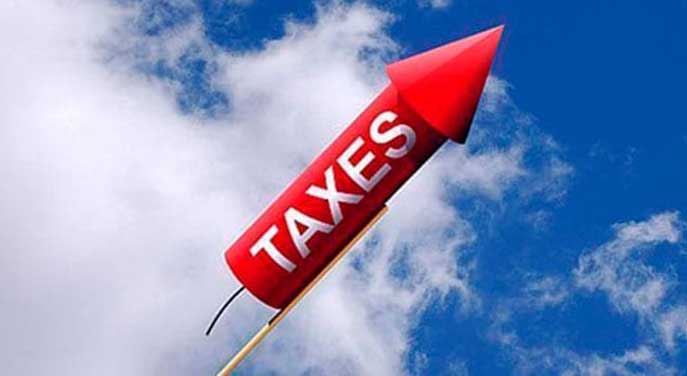By Jake Fuss
and Tegan Hill
The Fraser Institute
On July 8, the government of Prime Minister Justin Trudeau will release a “snapshot” of federal finances, the first such update since the COVID-19 crisis began.
The government may also soon look to raise taxes to try to increase government revenue, either to finance new spending or reduce the federal budget deficit.

Jake Fuss
But tax hikes will hurt Canada’s tax competitiveness and exacerbate our economic challenges, while likely not producing the additional revenue the government expects.
Since 2009, tax hikes at the federal and provincial levels have increased personal income tax (PIT) rates in every province. For example, the Trudeau government in 2015 raised the income tax rate on entrepreneurs, professionals and business owners from 29 per cent to 33 per cent.
In Canada and the United States, nine Canadian provinces are among the top 10 least-competitive tax jurisdictions in terms of the top combined personal income tax rate (that’s the federal rate plus the provincial/state rate).
|
||
| Sourcebook Click here for contact info and author image |
||
| 602 words Reading Time: 3 minutes |
||
| NEED HELP? Contact us at [email protected] |
And Canada’s personal income tax rates are among the highest in the industrialized world. In 2018 (latest year of comparable data), Canada had the seventh-highest top combined tax rate among 36 Organization for Economic Co-operation and Development (OECD) countries.
Why does this matter?
Our high income tax rates discourage productive economic activity and put Canada at a competitive disadvantage in attracting and retaining skilled workers and entrepreneurs who drive innovation, investment and job creation.
These are all things the economy needs more of, particularly as we look to recover from the COVID-19 recession. Canada has also lost its advantage on business taxes due to recent reforms in the U.S.
A recent study from the University of Calgary demonstrated that, after accounting for provincial/state tax rates, the U.S. business tax rate (25.7 per cent) is lower than Canada’s (26.7 per cent) for the first time in more than a decade.
Moreover, Canada now has the 10th highest business tax rate out of the 36 OECD countries, harming our ability to attract businesses and investment.
There’s also growing concern that the government could expand capital gains taxes, which would also discourage entrepreneurship, investment and saving. Canada’s capital gains taxes are already higher than in many OECD countries, and several countries – such as Switzerland, New Zealand and Hong Kong – that have no capital gains taxes at all.
Canadian governments have made the country less competitive partly in an effort to raise more revenue.

Tegan Hill
However, taxpayers, especially upper-income earners, tend to respond to tax increases in ways that can reduce the tax revenue governments would otherwise collect. For example, in response to a tax hike, taxpayers may work less, report less taxable income or shift income to other jurisdictions with lower tax rates to reduce their taxable income.
For these reasons, the government would likely not gain as much new revenue as expected by raising taxes on high-income earners.
In fact, a recent study estimated that the government’s 2015 tax hike on upper-income earners would lead to $10.3 billion in additional tax revenue this year (before any behavioural response), but only $0.7 billion after accounting for behavioural effects.
The study also found that in the longer-term, the federal government would likely collect more revenue if the top tax rate had remained at 29 per cent.
The government must recognize that Canada already has a competitiveness problem and should avoid tax hikes that will hinder our economic recovery.
The evidence suggests that raising tax rates on high-income earners is unlikely to significantly boost revenues in the long-term, casting further doubt on the wisdom of any tax hikes.
Jake Fuss and Tegan Hill are economists at the Fraser Institute.
For interview requests, click here.
The opinions expressed by our columnists and contributors are theirs alone and do not inherently or expressly reflect the views of our publication.
© Troy Media
Troy Media is an editorial content provider to media outlets and its own hosted community news outlets across Canada.




